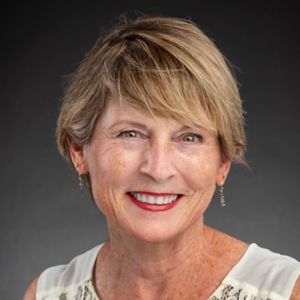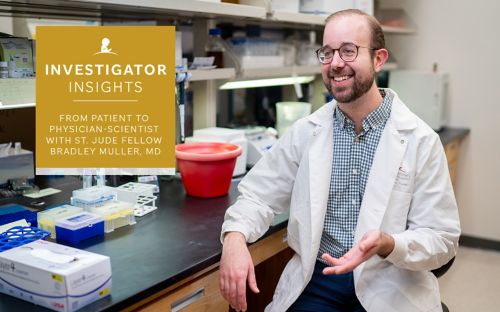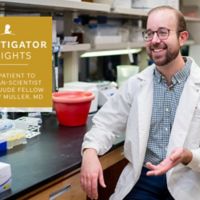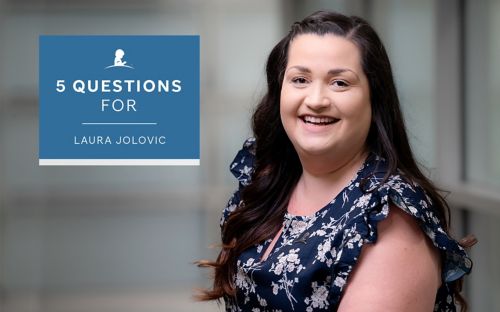The life and legacy of Joseph Simone, MD
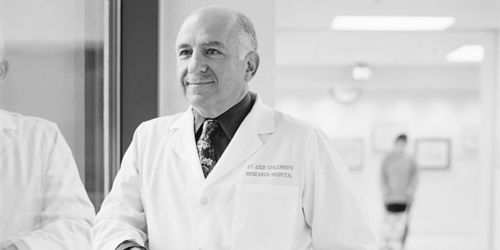
Joseph V. Simone helped lead the first curative treatment for childhood leukemia, marched with Dr. Martin Luther King Jr. and headed cancer centers throughout the nation.
Joseph V. Simone, MD, a clinician who helped lead the first curative treatment for childhood leukemia, died Thursday, January 21, 2021, at the age of 85. In addition to his work on the legendary Total 5 clinical trial, Simone served as the third director of St. Jude Children’s Research Hospital from 1983–92. Under his leadership, the hospital instituted an HIV/AIDS clinical program, dramatically elevated its research, and created one of the world’s largest long-term follow-up clinics for childhood cancer survivors.
“Dr. Simone was an extraordinary leader and a giant in the field of oncology,” said James R. Downing, MD, president and CEO of St. Jude. “Our hospital—in truth, the world—owes a great debt of gratitude to him for his many accomplishments. A visionary and a world-class clinician, he was, most importantly, a man of principle.”
Chasing challenges, healing wounds
A native of Chicago, Simone joined St. Jude in 1967, during an era when childhood cancer was a veritable death sentence. The hospital’s first director, Donald P. Pinkel, MD, recruited Simone by saying, “You must have a Moby Dick to chase.” Within a couple of years, Pinkel put Simone in charge of the hospital’s leukemia program. Simone eventually served as associate director for clinical research before becoming the hospital’s director. Along with Pinkel, Simone helped develop and lead the Total 5 protocol for acute lymphoblastic leukemia (ALL). That clinical trial raised the ALL survival rate from 4% to 50% and set the stage for decades of progress in curing childhood catastrophic diseases.
“With guidance from our mentor there, Donald Pinkel, our research team was the first to say this was a curable disease, at least in some patients,” Simone once told a reporter. “And you can’t top that—that’s the best you can do in any career.”
Robert Webster, PhD, recalls that he and Simone arrived at St. Jude during a tumultuous time in history.
“One of the first things we did together was walk in the ‘I Am a Man’ march,” said Webster, who is now an emeritus faculty member in the Department of Infectious Diseases. Led by Martin Luther King Jr., the march was held in support of the Memphis sanitation workers’ strike.
A week later, when an assassin’s bullet felled King, Simone wrote, “My own life and work seemed so meaningless as I watched the television obituaries and review of the life of King. I feel a deeper personal loss at this time than I can express.”
To help heal the wounds of racial division in the city, Simone worked with Pinkel and others to establish a clinic for poor children, which was followed by the creation of the MAP South Project and the federal Special Supplemental Nutrition Program for Women, Infants, and Children (WIC) program. The WIC program continues to exist today.
Building a reputation
Over beers and pastrami sandwiches in a Bethesda, Maryland, hotel room, Simone met with Chuck Sherr, MD, PhD, in 1982, aiming to lure the young scientist away from his post at the National Cancer Institute. Sherr and his wife and scientific colleague, Martine Roussel, PhD, ultimately agreed to the move.
“Joe lent us his unflagging support for the next 10 years and gave me a voice in institutional development,” said Sherr, who founded the Department of Tumor Cell Biology. “He was the ideal boss, a patient listener, deliberative, honest, wise, funny, always available, outspokenly friendly, and, as a proven clinical researcher with significant past accomplishments, equally committed to improving basic science.”
During his years at St. Jude, Simone appointed nine department chairs, including those in Tumor Cell Biology, Immunology, Virology, Molecular Pharmacology and Genetics.
Nobel laureate Peter Doherty, PhD, also credits Simone for his recruitment to Memphis.
“Meeting Joe Simone—and getting the pretty much immediate sense that he was a straight-shooter who meant what he said and stuck to it—was a major factor in my decision to go to St. Jude,” Doherty said. “Joe was a physician/investigator, not a basic scientist, but he set the future tone for the institution by recruiting people like Chuck Sherr and Jim Ihle, which has led to its academic prominence today.”
Mentor, leader, friend
Simone served as a mentor and adviser to many faculty and staff members, including Ching-Hon Pui, MD, who now chairs the Department of Oncology.
“When he was director of St. Jude, Joe had an open-door policy, welcoming people across the hospital to stop by to chat or to get advice,” Pui said. “I, like many others, took advantage of the invitation. He was a great mentor—generous with his time and talent. When I was a second-year assistant member at St. Jude, I was awestruck when Joe extended me the gracious offer to write up an article summarizing the results of one of our Total Therapy studies.
“Across St. Jude, people felt at ease with Joe,” Pui continued. “He would eat lunch regularly in the cafeteria—and he was never alone for long. Joe would draw a crowd of employees to his table, eager to share their thoughts, appreciation and camaraderie.”
Simone brought scientific attention to St. Jude by entering the Pediatric Oncology Group in 1981 and later paved the way for St. Jude to be a charter member of the National Comprehensive Cancer Network. It was also during his tenure that the hospital considered and, ultimately, rejected an offer to relocate to Washington University in St. Louis.
“Although our Board of Governors ultimately resisted the move, I believe their extensive deliberations convinced them that our organization was transitioning from a triple-A team to the major leagues,” Sherr said. “Joe’s deft handling of many extant complexities and unwavering commitment to St. Jude fostered the subsequent recruitment of many additional chairpersons and triggered the advent of new construction on our campus that has continued to this day. Like so many others, I adored him—he was a remarkable man.”
After leaving St. Jude, Simone took on leadership roles at cancer centers around the country, including Memorial Sloan-Kettering Cancer Center in New York and the Huntsman Cancer Institute at the University of Utah. He also founded Simone Consulting, which provided a range of services in cancer care and cancer research. He was living in greater Atlanta when he died.
Renaissance man
Simone’s love of writing was well known. An avid diarist, he logged an astounding 1.3 million words that detailed a rich career in science and medicine. He also authored many articles and other publications. One of the most memorable is his book Simone’s Maxims Updated and Expanded: Understanding Today’s Academic Medical Centers, in which he shared the philosophies that guided his leadership style.
“These were so widely discussed that eventually they were published by the American Association for Cancer Research,” said William Evans, PharmD, former St. Jude president and CEO. “Simone’s Maxims became so popular that it could even be purchased from Amazon. A couple that influenced me were, ‘In recruiting, first-class people recruit first-class people; second-class people recruit third-class people’ and ‘With rare exceptions, the appropriate maximum term for an academic leader/administrator is 10 years.’
“It is no coincidence that I served as St. Jude CEO for 10 years,” Evans said. “A third maxim that I never wanted to accept was, “institutions don’t love you back.’”
Doherty said the latter may not have applied in at least one instance.
“When he wrote in Simone’s Maxims that ‘institutions don’t love you back,’ I think he was wrong about St. Jude and Joe Simone,” Doherty said. “He has a special place in our memories.”
A mighty legacy
A brilliant researcher and clinician, Simone was beloved for his gregarious nature and his joviality. In honor of his many achievements, in 2014, the hospital created the Joseph Simone Endowed Chair in Basic Research.
“Joe was a remarkable, unforgettable person. Despite being a giant in the field and a leading academic voice, he was down-to-earth, approachable, and exceptionally kind. Joe had a special talent of getting to know everyone, and he used this to bring out the best in each person as well as to bring people together,” Pui said. “I will miss him dearly but take comfort in knowing that his legacy lives on in our hearts and in the work of St. Jude.”
Simone is survived by his wife, Pat, and his daughters, Pattie, Julie and Margaret.
